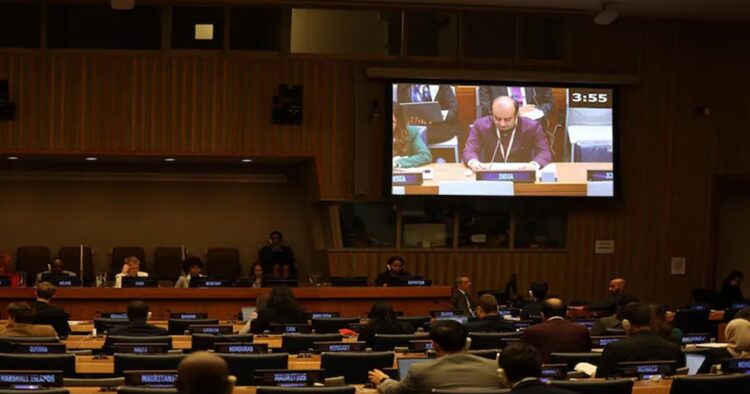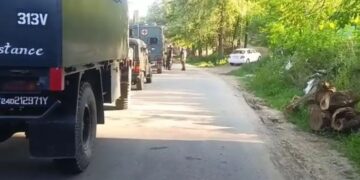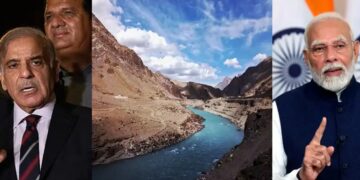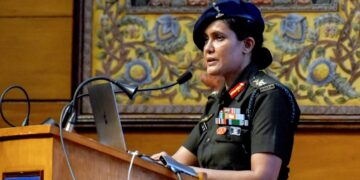On Friday, India rebuked Pakistan for spreading “falsehood” following it brought up Jammu and Kashmir during a UN debate on peacekeeping operations. Sudhanshu Trivedi, Member of the Rajya Sabha and National Spokesperson for the BJP, exercised India’s “Right of Reply” in reply to Pakistan’s comments, which he accused of attempting to derail the focus of the debate.
During the Special Political and Decolonisation (Fourth Committee) of the UN General Assembly, Trivedi’s remarks were made. Trivedi emphasised that Jammu and Kashmir “was, is, and will remain an integral part of India,” emphasizing that the people of the region had exercised their democratic rights and elected a new government.
He called on Pakistan to stop spreading “falsehoods,” asserting that such rhetoric would not change the facts. Trivedi also made it clear that India would refrain from engaging with any further attempts by Pakistan to misuse UN procedures. The Rajya Sabha MP noted that, “We would like to state that the Union and Territory of Jammu and Kashmir was, is, and will remain an integral part of India. The people of Jammu and Kashmir have recently exercised their democratic and electoral rights and elected a new government”.
Trivedi’s response came following Pakistan’s delegate attempt to discuss the United Nations Military Observer Group in India and Pakistan (UNMOGIP), which monitors the ceasefire along the Line of Control. India has argued that the UNMOGIP has outlived its utility following the 1972 Simla Agreement, which established the Line of Control, making the peacekeeping mission redundant. He further added, “Pakistan must desist from such rhetoric and falsehood because it will not alter the facts. Out of respect for August members of this forum, India will refrain from responding any further attempts by Pakistan to abuse the UN procedures”.
He highlighted that contemporary conflicts are increasingly complex, with new threats such as terrorism and armed groups influencing the outcome. India has consistently advocated for practical and achievable mandates for missions, which include safeguarding the safety of peacekeepers.
Later, Trivedi took to microblogging site X, sharing his views on the broader issue of peacekeeping operations in the modern context. “While discussions in United Nations on UN Peacekeeping operations when the representative from Pakistan speaking on the same subject of UN peacekeeping, tried to digress the subject and unnecessarily mentioned that Pakistan’s involvement with UN peacekeepers started when UN has put up peacekeepers in 1948 in disputed territory Jammu & Kashmir,” he wrote on X.
He also underscored the need for realistic exit strategies for peacekeeping missions, asserting that missions, often serving political purposes, waste valuable resources. Trivedi underscored the importance of justice for peacekeepers who fall victim to crimes during missions, calling for the perpetrators of such crimes to be held accountable.

















Comments